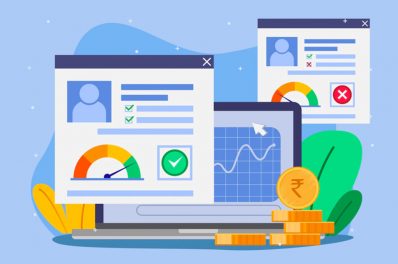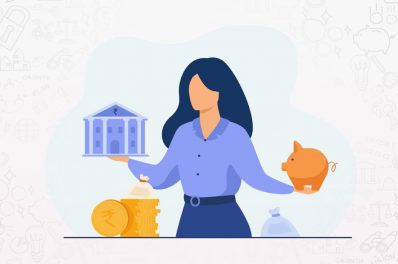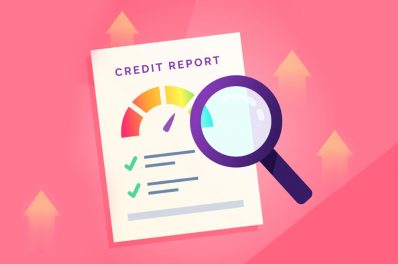
Whenever you apply for a personal loan or business loan, lenders check your credit score to determine your creditworthiness. Ranging from 300 to 900, the closer your score is to 900, the higher chances you have of getting loan approvals at lower interest rates. However, certain mistakes that you make towards your finances may harm your credit score and reduce your credibility in the long run.
Poor spending habits and financial management may cause you to lose a great fortune. As far as money is concerned, people make mistakes that can reduce their credit score and impact their financial health. If you can identify and overcome them, you can increase your credit score and save your finances. Let’s look at some of these mistakes that you must avoid at any cost.
1. Excessive Spending
Spending more than you can afford is one of the biggest financial mistakes that may reduce your credit score. Ordering food and buying clothes unnecessarily may not seem to be a big deal, but if you are habitual of doing such expenses, you may lose a significant amount each year.
If you avoid such expenses and save this money, you can build an emergency fund for a financial crunch. As a result, you can stay updated with your EMI and bill payments and save your credit score.
2. Buying Without Thinking
Making a large expense such as a destination wedding of your dream is a crucial financial decision that you must take time to finalise. Know your budget, calculate the EMIs using a personal loan EMI calculator, and choose a loan term with EMIs you can easily afford.
Whichever large expense you plan to make, do some research, compare the costs, and finalise your decision with sufficient information.
3. Making Expenses Larger Than Your Budget
Whether you want to plan a vacation, renovate your home, or go abroad for education, ensure that you plan your expenses within your budget. Instead of buying a car that is a depreciating asset, invest in real estate that may give you profit after a few years. If you are renovating your home on a personal loan, ensure that its EMIs are within your monthly budget, and you can also handle its maintenance conveniently. If you go overboard your budget, you may miss the EMIs, significantly affecting your credit score.
4. Not Saving Anything
Many individuals live paycheque to paycheque without saving anything. However, this is a big mistake you might be making because you will be left with no money if you lose your job or an emergency occurs. Ideally, you must have at least 6 months’ salaries saved as your emergency fund. Without savings, you may be forced to take a loan unnecessarily, and you may end up getting caught in a debt trap.
5. Not Planning for the Future
Saving a small percentage of your income every month will help you build an emergency fund for the rainy days. There might be several expenses arising unexpectedly, like a medical emergency, home repair, or a spontaneous family vacation. Assess your risks and save some money in different investment schemes. Ensure that your credit report has a balanced mix of debt funds, equity funds, and conventional saving schemes.
Also Read: How to Build a Credit Score with No Credit History?
6. Borrowing Unnecessarily
Personal loans are readily available these days for a variety of expenses, including home renovation, education, vacation, medical emergency, debt consolidation, or wedding. However, some people are habitual of borrowing loans for avoidable expenses as well. As a result, they increase their debt-to-income ratio and reduce their credit score.
You also lose money by repaying the loan along with the interest rate. Therefore, evaluate your needs first and borrow loans miserly.
7. Using Up Savings for Paying Off Debt
Sometimes it becomes necessary, but you should avoid paying your debt from your savings. By doing this, you will not only lose your emergency fund but also lose the interest rate you would have earned on that amount. Lenders look at your savings while evaluating your loan application. If you have no money in your account, they may perceive you as a high-risk borrower.
8. Not Checking Credit Report Regularly
A good credit score helps in saving a considerable amount on interest rates. The higher your credit score, the higher the loan amount you may get at better interest rates. Whether you apply for a personal loan or business loan, you must check your credit report regularly and keep it free from errors.
9. Not Taking Loan When Required
Getting a loan for different things may save your money during emergencies. For instance, if you apply for a personal loan to cover expenses for your home renovation, the lender will cover your home repair costs, and you will not need to exhaust your savings.
10. Paying the Price in Full
Even if you can afford it, you should consider buying things in instalments. Whether booking flight tickets, buying an electrical appliance, or purchasing a laptop or smartphone, you should consider paying its price in EMIs. By regularly paying the price in instalments, you can build a responsible repayment history and improve your credit score. However, don’t take this step if you are not sure you can pay the EMIs on time.
11. Not Earning to Your Full Potential
These days, earning from a 9 to 5 job is not sufficient. You must find ways to earn extra money as well. For instance, you can take tuitions in the evenings or turn a hobby into a profession.
This way, you can hone your skill and at the same time earn some extra income. While you are trying to improve your credit score, you must take a step back and identify the mistakes you are making. Keep tabs on your expenses, save as much as possible, and find ways to increase your income.
Once you earn a high Experian credit score, you become eligible to apply for a personal loan or business loan from Clix Capital. We have easy eligibility conditions and minimal documentation requirements to approve your loan in no time.
For any queries, please find us on Facebook, Instagram, LinkedIn, Twitter, or WhatsApp. You can also reach us at hello@clix.capital.com or call us at +91-120-6465400.T&C Apply*








